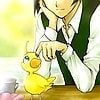| View previous topic :: View next topic |
| Author |
Message |
|
|
neocloud9
 Joined: 06 Oct 2008
Joined: 06 Oct 2008
Posts: 1178
Location: Atlanta, GA
|
 Posted: Tue Oct 26, 2010 12:11 am Posted: Tue Oct 26, 2010 12:11 am
|
 |
|
|
Wow, how embarrassing... I'm surprised that managed to get published.
|
| Back to top |
|
|
|
Crisha
Moderator
 Joined: 21 Apr 2010
Joined: 21 Apr 2010
Posts: 4290
|
 Posted: Tue Oct 26, 2010 12:20 am Posted: Tue Oct 26, 2010 12:20 am
|
 |
|
|
Thanks for the link to Takeshi Matsui's article, Brian. I've only skimmed through it for now, but I'll definitely be taking a closer look later.
Sorry to hear that Cooper-Chen's book is a bust. It sounds like lazy writing (and I recognize some of her methods... as a bioengineer grad, I've had my fair share of times where I just got plain sick of typing all those reports/papers and took a few short cuts *whistles innocently*). And, wow, Wikipedia? Man, that's a freshman-level mistake. I remember taking biology labs in college with several of the freshmen quoting wikipedia during their write-ups - one lab TA had to make a point by posting something on a wikipedia page saying that anyone can modify it and that it should not be used as a reference.
|
| Back to top |
|
|
|
Moomintroll
 Joined: 08 Oct 2007
Joined: 08 Oct 2007
Posts: 1600
Location: Nottingham (UK)
|
 Posted: Tue Oct 26, 2010 5:51 am Posted: Tue Oct 26, 2010 5:51 am
|
 |
|
|
Cooper-Chen's book certainly sounds like it would be best avoided. Mind you, it's worth noting that the Takeshi Matsui article is also littered with factual errors. Not to mention the typos. Still, interesting reading.
|
| Back to top |
|
|
|
GloriousMaximus
 Joined: 11 Nov 2009
Joined: 11 Nov 2009
Posts: 138
Location: North America
|
 Posted: Tue Oct 26, 2010 8:51 am Posted: Tue Oct 26, 2010 8:51 am
|
 |
|
|
That book sounds like it should be avoided. Seriously, quoting wikipedia? That's sad.
It's too bad she didn't expand more on the other countries, it would have been interesting to learn about anime and manga in places like Hungary.
Reading this review makes me think that she didn't do enough thinking on her own to come up with her own ideas. It sounds like she might have come up with some broad ideas from reading a few articles without really delving into much detail or trying to expand on what her quoted authors wrote.
This column rocks, keep up the great work!
|
| Back to top |
|
|
|
Tamaria
 Joined: 21 Oct 2007
Joined: 21 Oct 2007
Posts: 1512
Location: De Achterhoek
|
 Posted: Tue Oct 26, 2010 8:57 am Posted: Tue Oct 26, 2010 8:57 am
|
 |
|
From Takeshi Matsui's article:
| Quote: | |
Introducing popular shojo titles such as Love Hina by Ken Akamatsu and Chobits by CLAMP |
Shoujo, really? <_<
I kind of stopped reading there. The charts were fun, though.
|
| Back to top |
|
|
|
asimpson2006
 Joined: 13 May 2008
Joined: 13 May 2008
Posts: 3151
Location: USA
|
 Posted: Tue Oct 26, 2010 9:14 am Posted: Tue Oct 26, 2010 9:14 am
|
 |
|
| willag wrote: | |
And, wow, Wikipedia? Man, that's a freshman-level mistake. |
My mom gets this paper from this alternative medicine site on a bi monthly basis, and in one of the articles talking about Colloidal silver (I'm going to explain it there) it also talked about a silver bullet and they quoted what a silver bullet was from Wikipedia, and I remember that it was one of the largest parts of the article. I told my mom after seeing that I said "If they are trying to get their point across using Wikipedia as a quote in their article is pretty much a no no."
|
| Back to top |
|
|
|
UtenaAnthy
 Joined: 27 Oct 2006
Joined: 27 Oct 2006
Posts: 694
|
 Posted: Tue Oct 26, 2010 12:35 pm Posted: Tue Oct 26, 2010 12:35 pm
|
 |
|
|
Brian Ruh wrote: "This approach can lead to some highly skewed pictures being painted. For example, if you read the four skimpy paragraphs given to anime in the UK, you'd be led to believe there is no anime in the country save titles like Pokémon and Naruto, and no manga except for Barefoot Gen. (Which, if you didn't already know, is far from the case.)"
Not to mention that just going to amazon.co.uk and looking in the anime section under DVD and Blu-Ray will correct someone on that assumption, we do have less titles available than in the states, as the way it tends to work is that we get a selection of the titles licensed for u.s. release which have English dubs, and while things have improved substantially, they were somewhat dire in the past, it took a lot longer for u.k. licensors to move past "do you like bloody violence and lots of T&A? Manga cartoons are for you!" and "hey kids, want to see a cartoon that is either just as bad as typical u.k and u.s. kids fare or has been changed substantially from what it originally was so it now is just as bad as typical u.k. and u.s. kids fare? Well here it is! Remember to buy lots of merchandise!" Uncut, original language shojo anime was unheard of here until quite a few years later than in the u.s., with titles such as Cardcaptor Sakura, His and Her Circumstances and Revolutionary Girl Utena never getting properly released here (We got Cardcaptors, no Kare Kano and eventually the Utena movie but still not the series). We also didn't get Princess Tutu (which isn't shojo but is the sort of series that would be percieved as having girl cooties) or The Twelve Kingdoms. As I said though, things are much better now overall.
|
| Back to top |
|
|
|
|
Mune
Joined: 20 May 2004
Posts: 383
Location: Minnesota
|
 Posted: Tue Oct 26, 2010 1:31 pm Posted: Tue Oct 26, 2010 1:31 pm
|
 |
|
| GloriousMaximus wrote: | | That book sounds like it should be avoided. Seriously, quoting wikipedia? That's sad. |
I'm at a university and we read books about subjects and information in literature and get this, the authors qoute wikipedia. It is accepted, but it should not be the only source in the book.
Instructors here usually state that wikipedia can be a starting point and should be avoided as an ending point.
|
| Back to top |
|
|
|
einhorn303
 Joined: 20 Nov 2006
Joined: 20 Nov 2006
Posts: 1180
|
 Posted: Tue Oct 26, 2010 7:20 pm Posted: Tue Oct 26, 2010 7:20 pm
|
 |
|
|
Re: Quoting Wikipedia, it's problematic but I consider it appropriate for the question of defining terms with a cultural vagueness. After all, Wikipedia is an aggregate of what people can agree on, and it's a similar process to finding a socially acceptable general definition of a word.
What better source can there be for "What the word otaku means" besides "What a large mass of people think it means?"
|
| Back to top |
|
|
|
Rolando_jose
 Joined: 04 Jan 2007
Joined: 04 Jan 2007
Posts: 240
Location: Ahhhh it's vacation time again!
|
 Posted: Tue Oct 26, 2010 9:14 pm Posted: Tue Oct 26, 2010 9:14 pm
|
 |
|
|
When the author leaves a whole lot of nations out, I mean, "South America: Brazil..." Well, Argentina, Chile, Colombia just to mention a few have a big market for manga and anime. Oh well...
|
| Back to top |
|
|
|
Nephtis
 Joined: 21 Jul 2005
Joined: 21 Jul 2005
Posts: 138
Location: Australia
|
 Posted: Wed Oct 27, 2010 6:40 am Posted: Wed Oct 27, 2010 6:40 am
|
 |
|
| einhorn303 wrote: | | Re: Quoting Wikipedia, it's problematic but I consider it appropriate for the question of defining terms with a cultural vagueness. After all, Wikipedia is an aggregate of what people can agree on, and it's a similar process to finding a socially acceptable general definition of a word.
What better source can there be for "What the word otaku means" besides "What a large mass of people think it means?" |
So then it's probably better to take the definition from a few different academic sources. If you can find enough sources agreeing on part of it you can mention your findings.
Can't believe some of the stuff mentioned about this book, seems like the kind of things you'd get marked down for in first year and never do again. Good times.
|
| Back to top |
|
|
|
Frazmataz
 Joined: 30 May 2010
Joined: 30 May 2010
Posts: 103
Location: Sheffield, UK
|
 Posted: Wed Oct 27, 2010 10:52 am Posted: Wed Oct 27, 2010 10:52 am
|
 |
|
|
This author sounds very unprofessional. I'm 5 weeks into my university degree, and it's already been made clear to all concerned that paraphrasing like that is a one way ticket to permanent expulsion.
|
| Back to top |
|
|
|
|
PetrifiedJello
Joined: 11 Mar 2009
Posts: 3782
|
 Posted: Wed Oct 27, 2010 11:38 am Posted: Wed Oct 27, 2010 11:38 am
|
 |
|
I originally posted a comment yesterday, then removed it because it seemed "mean spirited". After re-reading my comments, it turns out no matter what opinion is stated, a disagreement is always going to be deemed "mean spirited'. Bear this in mind as you read.
| Quote: | | Now, I have nothing against Wikipedia – I think it's a great resource and a fine place to start from when you're looking up an unfamiliar topic. |
This statement is hypocritical. If one doesn't have "nothing against" Wikipedia, then it should be considered a source.
| Quote: | | However, it should never be used as a source itself, especially in something like an academic paper or book. |
This statement is borne of ignorance stemming from Wikipedia's early days as it was finding its home. Years ago, I carried the same attitude because one could read information one day only to see it gone/edited (over 50%) the next.
In 2010, however, this statement is no longer viable. I also find it audacious those who still make such comments refuse to provide reasonable explanations to why it shouldn't be a source.
Especially considering no academic paper allows for a single source to begin with.
| Quote: | | When I was teaching university classes, quoting Wikipedia was one of my cardinal sins for any kind of written work. |
I suspected when I read the column you were/are a teacher since it is of my experience this occupation carries such position unlike any other. Therefore, I believe the position you hold was not earned from your experiences, but passed down from one who taught you "Thou shall not use Wikipedia as a source".
I still remember when Wikipedia was first presented to the world, the incredible backlash it received because of its editing feature.
Yet, these same educators of our youth failed to realize every source is eventually edited.
In 2006, Wikipedia won me over when Pluto was declassified as a planet, which was updated the very same day the news announcement was made, while it took publishers months to re-print and re-distribute "credible" sources to education institutions around the world.
| Quote: | | I was completely taken aback to see Cooper-Chen quote from Wikipedia at length in order to tell her readers what otaku meant, especially considering there are plenty of other sources out there in English that discuss otaku. |
I, too, was also taken aback to see such a strict admonishment to Chen's choice of a definition. Moreso, I found it more shocking a recommendation was offered to use other English sources to define a Japanese word considering the niche English population using the word has no single definition.
Now I'm a bit curious to know what single credible source should have been used to define the word "otaku".
Enlighten the readers of your expectation, if you don't mind.
|
| Back to top |
|
|
|
Moomintroll
 Joined: 08 Oct 2007
Joined: 08 Oct 2007
Posts: 1600
Location: Nottingham (UK)
|
 Posted: Wed Oct 27, 2010 6:04 pm Posted: Wed Oct 27, 2010 6:04 pm
|
 |
|
| PetrifiedJello wrote: | | This statement is hypocritical. If one doesn't have "nothing against" Wikipedia, then it should be considered a source. |
It isn't at all hypocritical. All he's saying is that while he bears no particular malice towards Wikipedia, he doesn't consider it a suitable academic source.
You are certainly entitled to question the validity of that opinion but there's absolutely nothing inherently contradictory about it (and even if there were, it wouldn't be "hypocrisy" unless he was actively pretending to think that when he, in fact, did not think it at all).
Allow me to demonstrate my point with an analogous statement: "I have nothing against sherry trifle but I don't think it should be considered as a baguette filling." See? No hypocrisy - just an expression of opinion with which you may wish to disagree.
|
| Back to top |
|
|
|
|
BrianRuh
Joined: 17 Dec 2003
Posts: 162
Location: West Lafayette, IN, USA
|
 Posted: Thu Oct 28, 2010 9:08 am Posted: Thu Oct 28, 2010 9:08 am
|
 |
|
| PetrifiedJello wrote: |
| Quote: | | Now, I have nothing against Wikipedia – I think it's a great resource and a fine place to start from when you're looking up an unfamiliar topic. |
This statement is hypocritical. If one doesn't have "nothing against" Wikipedia, then it should be considered a source. |
Actually, I'd feel the same way about any sort of encyclopedia entry being used in an academic paper or article. Wikipedia (and encyclopedias in general) do not publish original research. They summarize things that have been written elsewhere. Therefore, you shouldn't cite Wikipedia as a source - you should go to the sources it references.
I like using Wikipedia for topics that I don't know much about because a good wiki article can get me pointed in the right direction toward what I should be reading. See, so while Wikipedia is useful, it shouldn't be used as a source. Referencing Wikipedia directly is just lazy research.
|
| Back to top |
|
|
|
|
